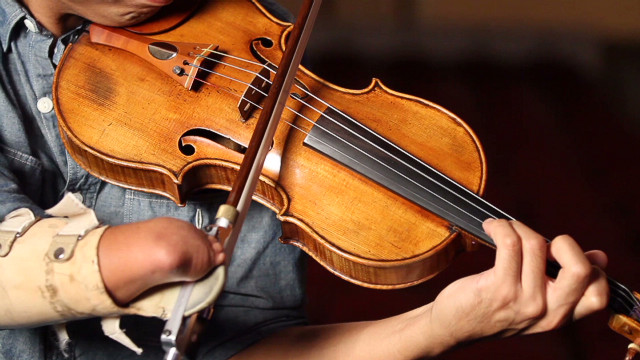Raise your choir's profile with social media
Sunday, February 24, 2013
0
comments
{[["☆","★"]]}
Whether you're wedded to your smartphone or you think the internet
spells the end of civilisation, social media is here to stay. My
company, Total Voice, which runs choirs and vocal workshops in the south of England, has been using social media for a while now and we've learned a lot in a short time.
This article is by no means an exhaustive guide to using social media
for choirs. We've really only scratched the surface so far, but we've
had some promising results which might be useful to you.
1. Who do you want to talk to?
If you want to use social media for administrative purposes, to
communicate primarily with your singers, a Facebook group is probably
the place to start. This will be particularly true if you are running a
youth choir because all your singers are probably already using
Facebook.
The advantage of using Facebook for organising your singers,
rehearsals and performances is that it has built-in functions which will
save you a great deal of time. For example, when you set up an event
for, say, a performance, you can invite your singers and get a "yes",
"no" or "maybe" from them in reply. You can update the group with
messages and they can post queries and comments. It's a whole lot
easier than managing email lists (or even physical lists on paper - do
people still do that?)
If your choir's demographic is older and/or more curmudgeonly about
the internet (or specifically Facebook) there are lots of event-planning
web apps that use your email list. I'm not a Google+ user, but I
imagine there's also an equivalent on that platform.
If you want to talk to past and prospective audience members, a Facebook page
is also useful. People can "like" your page, following which they will
see announcements and messages from you in their news feed. You can
also post photos, audio and video of your choir, or links to external
media. A word of caution - be circumspect about what you post if you're
aiming at audience members. Firstly, make sure any media you share is
of good quality. Grainy phone-shot video is worse than no video.
Secondly, keep a close eye on the content of the page. It's great to
share in-jokes or deal with minor complaints within your choir in a
private Facebook group, but on your choir's main page, you need to
maintain a professional attitude.
Twitter is also great
for announcements and for sharing media. The advantage of Twitter is
that you can re-post messages several times (don't overdo it though or
the Twitter police might think you're spamming) at different times of
the day or week to reach as many people as possible. The disadvantage
is that users tend to follow lots of people and organisations, and may
well miss your tweet.
The other main network that I use is LinkedIn.
This platform is aimed at professionals and it's a great way to get in
touch with all sorts of useful contacts. It's very like Facebook in
that you link to people, who can then see information about, and
communicate with, you. You can also join interest groups and engage in
discussions. In my experience, the tone is generally polite and users
are keen to connect. I find it extremely useful to canvas opinion among
other conductors and workship leaders about skills and repertoire.
As I've learned over the last year, it takes time and patience to
build up an online community, but the potential reward is that you have
an engaged audience that wants to hear from you about what your choir is
up to.
2. What do you want to say?
If you're organising your singers on Facebook or discussing topics of
interest with like-minded professionals on LinkedIn, it's pretty easy
to decide what you're going to say. If, however, you're trying to
entice interest in your choir from prospective audience members, it can
be tricky to get it right.
If you're posting on Facebook or tweeting, you want to get a
conversation going. Ask a question, invite opinions, comment on someone
else's tweet or post a link to something that interests you. Don't be
downhearted when you don't get instant comments or responses - people
are bombarded with media every day and miss a lot of it. If you remain
authentic and interested in what you're doing, you'll find that people
will engage with you. It's a process of "making friends". You say
"this is me and this is what I'm about" and hope that like-minded others
want to be part of that.
To an audience of choir leaders, I'm sure this goes without saying,
but always, always be courteous. Don't forget that it can be difficult
to convey tone in posts and tweets (hence the use of emoticons) and what
might sound pithy in your head could sound downright abrupt to your
audience. Never troll, never post angry (or drunk!) and always re-read
before you publish.
If you get unpleasant comments from others, don't feed the troll!
I've never really understood who all these people are on the internet
who want to rant and rage about YouTube videos, but there are plenty of
them and you might fall foul of someone's temper at some point. Rise
above it and move on, unless you can turn the experience into a fabulous song and dance number (warning - explicit lyrics).
3. Beware the tumbleweeds!
The challenging thing about social media is that you have keep at it,
particularly when you're trying to build a following. If someone
visits your Facebook page and your status hasn't been updated for a
fortnight, they're going to assume that you haven't got anything going
on and leave.
There's a balance to be struck here. Don't tweet "having a nice cup
of tea" just to have something to tweet, but don't let the tumbleweeds
blow through either. This shouldn't be too difficult - you're talking
about a subject that (presumably) interests you.
The more you share, the more likely people are to "like" or follow
you, which will gradually increase the size of the community that is
engaged with you.
Source Link
Source Link
THANK YOU FOR YOUR VISIT, PLEASE COME BACK SOON...
Title: Raise your choir's profile with social media
Written By Kristofani
Hopefully this article useful to you. If you wish to quote either part or all of the contents of this article, please include dofollow links to http://kristianporung.blogspot.com/2013/02/raise-your-choirs-profile-with-social.html. Thank you for reading this article.Written By Kristofani





















0 comments:
Post a Comment